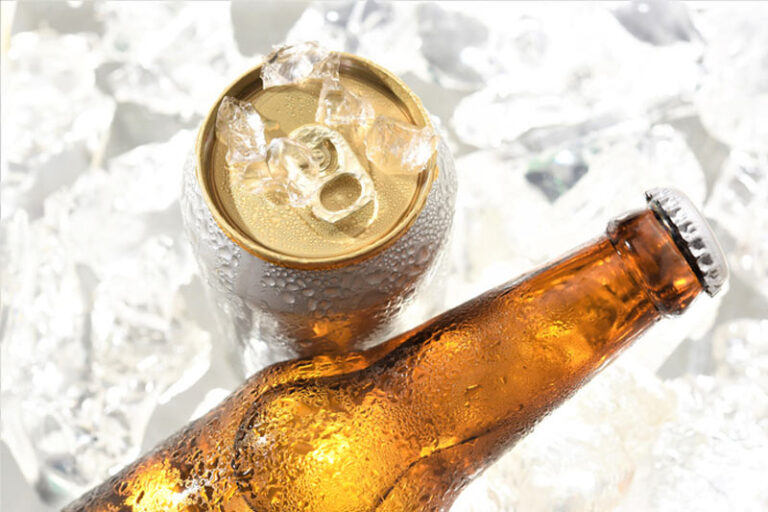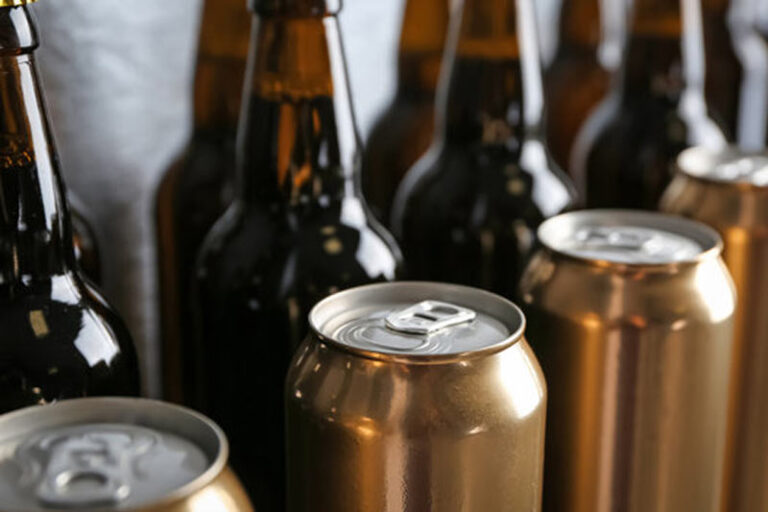The brewing industry continues to evolve, and bottling and canning have become a constant debate between consumers and producers. Each packaging method has its unique advantages and attractions, and making the right choice is not only a matter of personal taste preference, but also a matter of product quality, market acceptance, and environmental impact. This article explores the advantages and disadvantages of bottled and canned beer to help readers make an informed decision among the many choices available.
Table of Contents
Which beer lasts longer, bottled or canned?
Canned beer wins on this one. Even though beer bottles are usually made of light-resistant glass, a small amount of light still gets through. When beer is exposed to too much UV light, its flavor starts to deteriorate and it can become “stinky.” Additionally, beer bottle caps are usually not 100% sealed, and over time they let in small amounts of air, which can affect the beer’s flavor.
Is bottled beer better or canned beer better?
Which tastes better, bottled or canned beer? People have very strong opinions about this, especially beer drinkers. A scientific study conducted in Europe found that there was no consensus among 150 beer drinkers in a blind taste test as to which tasted better, canned or bottled beer. The study did find that European study participants had a pre-existing psychological bias against bottled beer when the drinker could see the bottle or can. However, it noted that positive perceptions of canned beer have been on the rise in North America, especially in the craft beer market. The study also noted that several other factors go into choosing beer cans or bottles, including cost, transportation, and environmental impact.

How long do they keep in cans?
Beer cans are not permeable to light and the closure (if you use a good can sealer) is completely sealed. The exact amount of time beer will expire in a can depends on the type of beer, how it was filled/sealed, and whether it was stored in a cold or warm place. However, many canned beers (if filled and sealed properly) will be kept for at least six months. If stored in a cold environment, they can last a year or more.
The difference between bottled beer and canned beer
Packaging Materials
- Bottle filling: Beer bottle filling mainly uses glass bottles, especially brown or green bottles. Because of its good light-shielding properties, brown bottles can effectively block ultraviolet rays and prevent ultraviolet rays from damaging the components in beer. In particular, they can inhibit the reaction of alpha acids and sulfides in beer to produce bad taste, thereby maintaining the best quality and flavor of beer. The green bottle follows the tradition of early glass manufacturing technology. Although the light transmittance is slightly higher than that of the brown bottle, modern technology has significantly improved its light-shielding performance. In addition, glass bottles are chemically stable and difficult to react chemically with beer, ensuring the pure flavor of beer.
- Canned: Canned beer uses aluminum cans as packaging materials. The aluminum material is not only lightweight but also completely opaque, providing better light protection for the beer and more comprehensive protection of the freshness and taste of the beer. In addition, there is usually a layer of polymer film inside the aluminum can to isolate the direct contact between the metal and the beer to ensure that the taste of the beer itself is not affected.
Sealing and shelf life
- Bottle filling: Although glass bottles can provide good sealing performance and effectively isolate external air, their ability to block oxygen is relatively weak. Over time, bottled beer may be affected by oxidation more quickly and become off-flavor. Therefore, the shelf life of bottled beer is relatively short, generally about a few months to half a year.
- Canning: Due to its good sealing and ability to block oxygen, aluminum cans can maintain a stable taste of beer for a long time and are not easy to oxidize. Therefore, canned beer has a relatively long shelf life and can generally be stored for more than one year.
Taste and quality
- Bottle filling: Beer in glass bottles is often considered to be more stable and pure in taste and quality. The chemical stability of glass bottles allows the beer to change less it, allowing it to better maintain the original flavor of the beer. In addition, many high-quality craft beers also tend to be bottled to showcase their unique taste and flavor.
- Canned: Although canned beer can also maintain a better taste, some consumers think it may be slightly different due to the subtle reaction between metal and beer. Canned beer usually has a higher carbon dioxide content, which can give the beer a richer taste and foam.
Environmental Impact and Recycling
- Bottle filling: Glass bottles are recyclable and environmentally friendly materials that can be reused after cleaning and disinfection, reducing environmental pollution. However, glass bottles may face problems such as breakage and high transportation costs during the recycling process.
- Canning: Aluminum cans also have a high recycling rate, and due to their lightweight and small size, energy consumption during transportation is relatively low. However, the production process of aluminum cans also consumes certain resources. But overall, canned beer performs well on the environmental front.
Advantages of bottled beer
Since its launch, bottled beer has been loved by consumers for its classic and high-end image. The following are its main advantages:
- Quality preservation: Glass bottles have excellent preservation performance for beer, and can effectively prevent the entry of light and oxygen, thereby maintaining the freshness and taste of beer.
- Brand image: Bottled beer is often regarded as a symbol of high quality and high-end, which helps to enhance brand image and market recognition.
- Environmental advantages: Glass bottles can be reused or recycled, and have less impact on the environment than other materials.
- Consumer preference: Many consumers prefer to buy bottled beer, especially in the gift market and high-end consumption places.
Nevertheless, bottled beer also has some shortcomings:
- Fragility: Glass bottles are more likely to break during transportation and use, increasing transportation costs and risks.
- High cost: It is relatively expensive to manufacture and transport glass bottles, which may increase production costs.

Advantages of canned beer
With the advancement of technology and changes in market trends, canned beer has gradually won the favor of more consumers in recent years. The following are its main advantages:
- Freshness preservation: Aluminum cans can effectively block light and oxygen, protect the freshness and taste of beer, and are especially suitable for outdoor and convenient consumption scenarios.
- Portability: Aluminum cans are light and easy to carry, suitable for consumption in outdoor activities, large gatherings, and sports venues.
- Environmental considerations: Although the production process of aluminum cans may consume a lot of energy, its high recycling rate and reusability give it a competitive advantage in environmental protection.
- Market popularity: Canned beer is widely popular and accepted in the fast-moving consumer market and retail supermarkets, especially among young consumers.
Canned beer also has its disadvantages:
- Quality retention: Compared with glass bottles, aluminum cans may affect the taste and quality of beer in long-term storage and high-temperature environments.
- Consumer preference: Some consumers may think that canned beer is not as high-end and traditional as bottled beer, which may affect brand image and market positioning.

